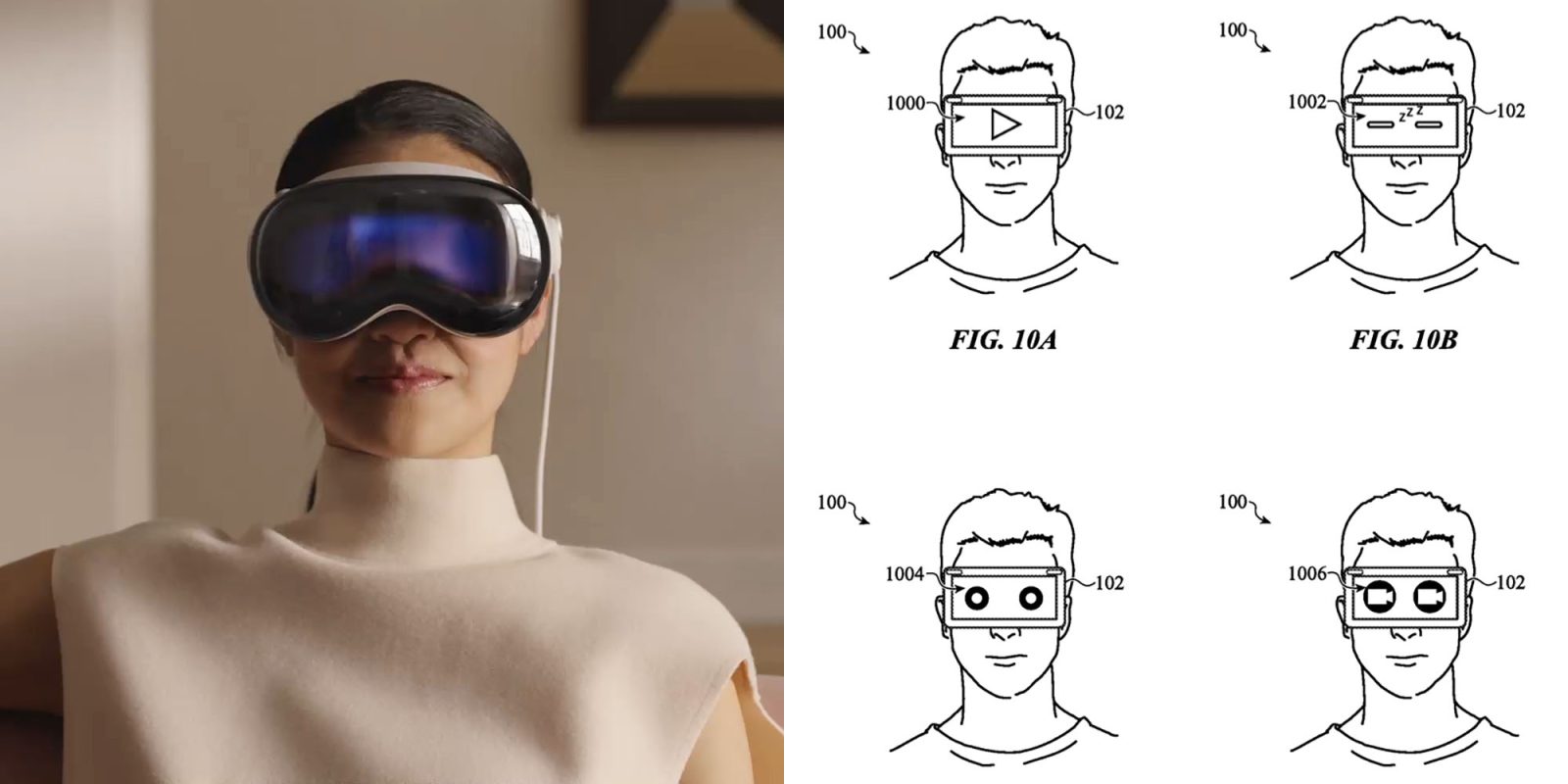
One of the features that distinguishes Apple’s headset from its rivals is the outer Vision Pro display. This displays colorful abstract patterns when the user is fully immersed in content, and a simulation of their eyes when they are in augmented reality mode, and able to see their surroundings.
An Apple patent credited to former design lead Jony Ive shows that the company initially considered many more outer display options …
Apple’s philosophy on AR versus VR
Apple for a long time said that it was much more interested in augmented reality (AR) than virtual reality (VR), as the company wants to see technology encourage human contact, rather than isolating people into a completely artificial environment.
CEO Tim Cook has frequently spoken about the contrast between the two technologies.
“There’s no substitute for human contact,” Cook told BuzzFeed News. “And so you want the technology to encourage that” […]
“VR, I think, has some interesting applications, but I don’t think it’s a broad-based technology like AR,” Cook explained. “Augmented reality will take some time to get right, but I do think that it’s profound. We might … have a more productive conversation, if both of us have an AR experience standing here, right? And so I think that things like these are better when they’re incorporated without becoming a barrier to our talking. … You want the technology to amplify it, not to be a barrier.”
Vision Pro is a mixed-reality headset which combines AR and VR, but Apple presents it primarily as an AR device.
This is the reasoning behind EyeSight
That desire to allow people to remain connected when using this tech is the reasoning behind EyeSight. Displaying a rendering of the user’s eyes not only presents a more human experience than the blank casing of existing headsets, but it also signals that the user can see you, and therefore won’t be startled if you speak to them.
Conversely, when the user is fully immersed in a VR experience, that is signalled by a cloudy display pattern.
Apple patented other uses for the outer Vision Pro display
As noted by The Verge, Apple also patented other potential uses for the outer display – giving people a more specific clue as to what Vision Pro users are engaged in. If you were watching a movie, for example, the display would show a movie camera icon.
The site suggests that these are ideas being considered by Apple.
A new patent granted to Apple details how the company is thinking of using the Vision Pro’s external display to show what the wearer is looking at inside the device.
9to5Mac’s Take
While we can’t definitively rule out The Verge’s take that these are things Apple is currently mulling, it’s way more likely that these are ideas the company ultimately rejected in favor of a simple available/unavailable indicator.
All an external observer really needs to know is whether they can be seen by the Vision Pro user. EyeSight communicates that in a very natural way. There’s no good reason we should need to know which specific app is being used – and it could be argued that this is a privacy risk.
Images: Apple promo/patent
FTC: We use income earning auto affiliate links. More.




Comments